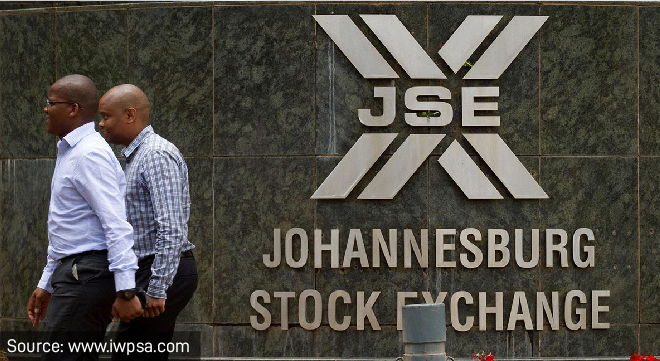The JSE is considering a range of measures to address the trend of delistings from the market, including simplifying the financial disclosure requirements.
At the exchange’s 2022 annual general meeting last week, Chris Logan, a shareholder activist and the chief investment officer of Opportune Investments, posed a number of questions related to what the JSE was doing about delistings.
Logan said he believed there were many reasons other than red tape for the shrinking of the JSE, which has now experienced seven consecutive years of net delistings.
He questioned whether the JSE was doing enough to communicate how stock markets promote economic growth and development.
Outgoing JSE chairperson Nonkululeko Nyembezi and chief executive Leila Fourie said stemming the tide of delistings and encouraging new listings were top priorities for the JSE’s board and management.
However, they said delistings from public markets was a global phenomenon, and the trend has been present for a decade.
Fourie said the Luxembourg bourse has 55% fewer listings, the Deutsche Börse 36% fewer, the Swiss 22% fewer, and the London Stock Exchange (LSE) 21% fewer.
The JSE has 18% fewer listings than it did seven years ago.
The tech factor
Nyembezi said the JSE’s inability to attract technology companies has impacted net listings.
Exchanges that attract tech counters have bucked the delisting trend – particularly, the Nasdaq, as well as Hong Kong and Euronext in the Netherlands.
Nyembezi said South Africa was not bereft of tech companies, but the growth of private capital has been “explosive”, and many entrepreneurs were able to find financial backing by going that route.
The increase in the compliance requirements for listed entities also make the private equity market more attractive, while tech entrepreneurs often avoid a public listing because they do not want to risk losing control of their companies.
But Logan said that when the LSE turned around its performance last year, with its strongest listings year since 2007, only 39% of the new capital raised was from tech and consumer internet companies. “So, it’s not purely tech that’s driving these listings globally.”
He said the JSE needed to follow the LSE’s example and ask for an independent assessment that could properly diagnose what the problems were in South Africa.
Nyembezi said Logan’s proposal of an independent assessment was something the JSE should consider, as it had enabled the LSE to reverse its decline in listings.
What the JSE is doing
Fourie said the JSE will issue a paper in the next few weeks to relook at governance levels, which will deal with the removal of auditor accreditation, the expansion of the real estate investment trust offering, and simplifying financial disclosures.
“We have introduced actively managed certificates, and we are in the process of introducing actively managed ETFs and funds.”
The JSE was undertaking a review of the secondary listing framework, as well as reconsidering the requirement that the public holds 20% of every listed equity, establishing a dedicated tech board, and simplifying the listing requirements in general.
However, she said the impact of the broader macroeconomic environment on listings should not be underestimated.
The JSE was engaging with policy makers on issues such as exchange control and potential tax rebates around the small and mid-cap market.
The exchange hosted roadshows with the president, key ministers and representatives from top listed entities to present South Africa as an investment destination
Turnaround in foreign flows
The JSE was “incredibly pleased” to see net inbound flows from foreigners for the first quarter of this year, after three years of systematic outflows, Fourie said.
“We have seen a turnaround in our net foreign flows in the equity market. We saw R18 billion net inflows as at the end of April,” she said.
Fourie said the average daily traded value on the exchange has increased 13% in the year to date.
In March, the exchange recorded R49bn in the value of average daily trades, which was the best month in the history of the JSE. The previous record of R48bn was set in August last year.
She said although global events such as the surge in the oil price and escalating inflation have weighed on the JSE, with the FTSE/JSE All Share Index declining by 1.7% in the year to the end of April, the JSE has fared better than other big stock exchanges. For example, the S&P 500 was down 13.3% for the year at the end of April.
Impact of large institutions
Logan asked whether the JSE has a view on “well-publicised work of Paul Miller, which is premised on the idea that public capital markets have a structural problem in that the big institutions that dominate the market by and large invest only in the largest 80 to 120 listings. This has had huge impact […] new companies cannot get finance, while existing companies just go to very poor ratings and delist.”
Fourie said it was true that the JSE was largely an institutional market that lacked deep penetration by retail customers. This resulted in a strong focus on the Top 40 shares, while less liquid counters trade less frequently, particularly during a downturn.
However, she said this was not a new phenomenon and it was a global dynamic.
She believed the JSE’s Private Placements platform, a digital marketplace that pairs private debt and equity issuers with investors, will go “a long way to start addressing some of these dynamics”.
Fourie said the JSE has a number of promising potential listings in the year ahead. These include Southern Palladium (an inward listing from the Australian Securities Exchange), Coca-Cola Bottling Company, Swiftnet, consumer goods group Premier, African Bank, Outsurance, Fidelity, and Xenith Energy.



